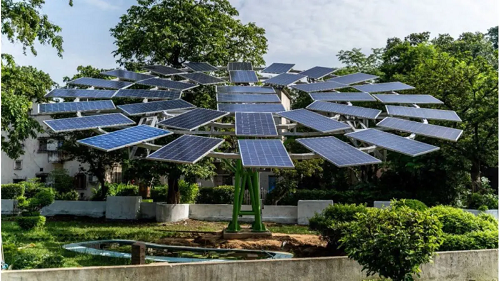In a pioneering leap for sustainable energy, a team of international scientists has successfully developed “solar trees” that generate electricity with the efficiency of traditional solar farms, but without consuming vast tracts of land or necessitating deforestation. This innovative technology promises to integrate renewable energy generation seamlessly into urban and natural landscapes, marking a significant step towards a greener future.
The project, spearheaded by researchers from the Fraunhofer Institute for Solar Energy Systems ISE in Germany and the Swiss Federal Institute of Technology Lausanne (EPFL), has focused on mimicking the natural architecture of trees. Each “solar tree” unit is designed with multiple branches supporting a canopy of highly efficient photovoltaic leaves. These leaves are not only optimized for maximum light absorption but also engineered to harvest energy more effectively in varied light conditions, including partial shading.
Early prototypes, deployed in test locations in both Germany and Switzerland, have demonstrated remarkable performance. Each “tree” unit, occupying a minimal footprint, is capable of generating between 3,000 to 5,000 kilowatt-hours (kWh) annually, comparable to a small traditional solar array. The vertical design and optimized angles of the “leaves” allow for greater energy capture throughout the day as the sun’s position changes, an advantage over fixed-tilt panels.
A key benefit of this technology is its aesthetic integration. Unlike sprawling solar farms that can disrupt ecosystems and alter landscapes, solar trees can be installed along highways, in urban parks, industrial zones, or even existing agricultural land, providing shade and visual appeal while producing clean energy. This dual functionality avoids the land-use conflicts often associated with large-scale renewable energy projects.
While the initial cost per unit is currently higher than traditional ground-mounted solar panels, researchers anticipate that economies of scale and further design refinements will drive down prices. The “solar tree” concept represents a bold vision for decentralized energy production, offering a path to power cities and communities with clean electricity while preserving vital ecosystems.







